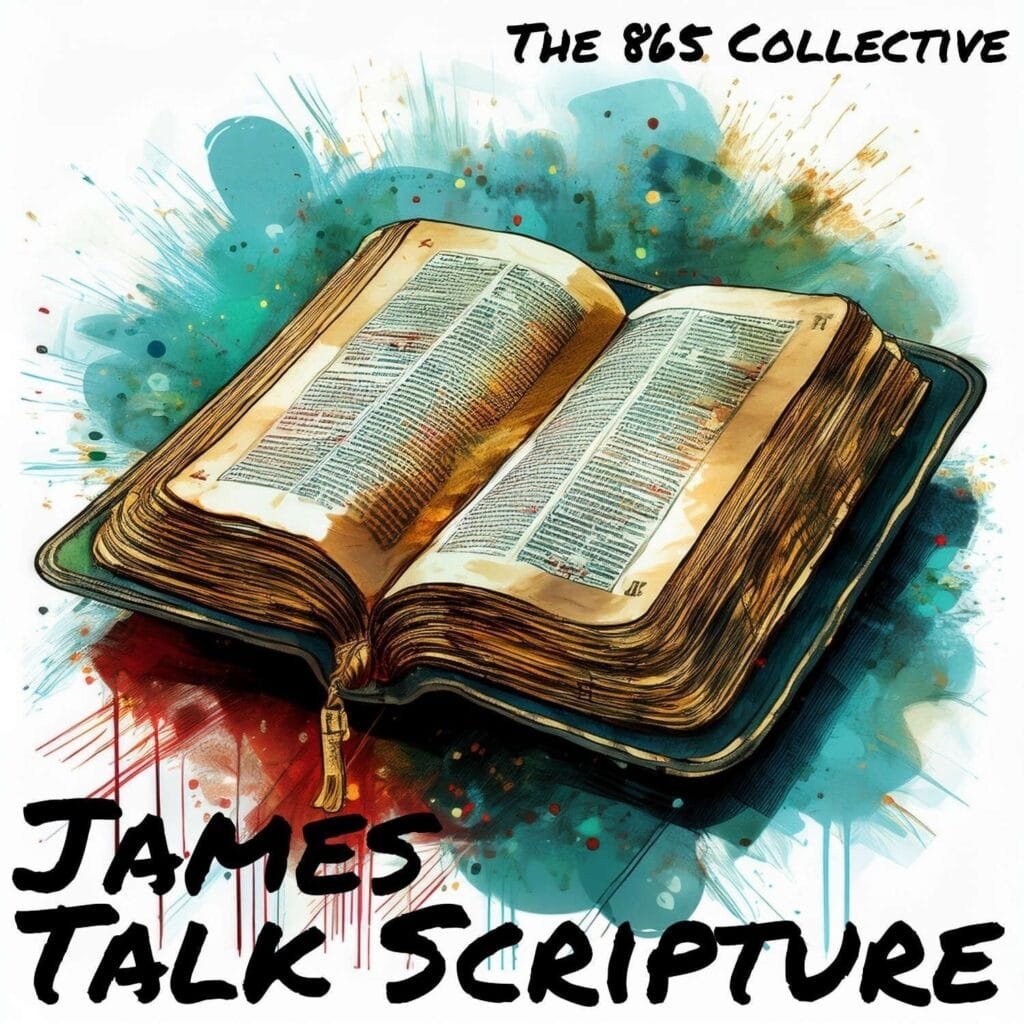Life isn’t always fair. It isn’t always easy. Sometimes, it’s undeniably hard. James, the brother of Jesus, doesn’t sugarcoat that reality. Instead, he offers us a roadmap for how to respond: with patience, with strengthened hearts, with unity, and with steadfast faith. Why? Because Jesus is coming back.
That’s not just a hope—it’s a promise rooted in the very nature of God. A God who has always been faithful. From creation, to the covenant with Abraham, to the deliverance of Israel from slavery. A God who sent Jesus—fulfilling prophecy, living a perfect life, paying the price we couldn’t, and defeating the grave. He came once before, and He will come again. Why? Simply because He said He would. It’s in His character—to rescue, to redeem, to keep His word, and to bring glory to His name.
So when suffering comes—and it will—be patient. Stand firm. Hold on.
When Suffering Comes, Pray
James tells us that patience should be our posture, and prayer our response.
Are you suffering? Pray. And let no one tell you it’s not “real” suffering. What burdens you may not burden someone else, but that doesn’t make it any less real. Your struggle is personal—and it matters to God.
Are you carrying sin? Pray. Wrestling with identity? Pray. Fighting doubt? Pray. Weak in your faith? Pray. Strained relationships? Pray.
If it’s heavy, bring it. If it hurts, bring it. If it’s keeping you up at night, bring it. To Him. Our God is no stranger to grief. He longs to comfort you, draw close to you, and hear you call out to Him, just like Jesus did: “Abba, Father.”
When Joy Comes, Praise
And if you’re cheerful? Praise.
Prayer and praise aren’t so different. Both acknowledge the greatness of God. Both are acts of worship. James reminds us: even in suffering, if joy finds you—don’t hold it back. Praise Him. Remember Paul and Silas? Beaten, shackled, and locked up—yet singing. Their worship wasn’t about breaking prison walls, but they didn’t seem surprised when those walls broke anyway.
The powerful part? The other prisoners didn’t run. The jailer, believing they had escaped, prepared to take his own life—but Paul cried out, “Do not harm yourself, for we are all here.” They stayed. Why? Maybe because they witnessed something greater than freedom—praise in suffering, and a God who responds.
When You’re Weary, Lean on Community
James doesn’t stop with individual suffering. He points to something just as vital: community.
Is someone among you sick? Call the elders. Let them pray. Let them anoint with oil—not as a magic potion, but as a symbol. It’s a visible reminder that you’re being set apart for God’s care. It’s an invitation to vulnerability, a call to let the body of Christ carry you when you can’t carry yourself.
Sometimes we don’t even have the words to pray. We’re tired. Doubt creeps in. Anger boils up. The temptation to give up rises. That’s when we need each other. That’s why God designed us for relationship. To lift each other up.
But James isn’t promising that every sickness will be healed. If that were the case, believers would never die, and faith would be wrongly measured by the absence of suffering. Scripture interprets Scripture. Yes, Jesus said, “Whatever you ask in my name, this I will do” (John 14), but in Gethsemane, He also said, “Not my will, but yours be done.”
Even Jesus surrendered.
Prayer isn’t about forcing our will—it’s about aligning our hearts with His.
When You’ve Sinned, Confess
James urges confession. “Confess your sins to one another and pray for one another, that you may be healed.” He isn’t saying all illness comes from sin, but unresolved sin weighs on us—emotionally, spiritually, even physically.
Confession restores us.
If your sin is private, confess to God.
If it involves someone else, confess to them.
If it’s public, bring it before the church.
Whatever the case: confess. Repent. Bring it into the light. Sin loses its grip in the light of truth, and healing follows humility.
Prayer and Praise: Our Greatest Weapons
James leaves us with two of the most powerful tools we have in a broken world: prayer and praise.
Our worship is our defense. Our worship is our weapon.
Craig Groeschel, in Winning the War in Your Mind, compares life’s struggles to a boxer in the ring. Hands up—one glove of prayer, the other of praise—ready to withstand every round.
But in our walk with God, raised hands mean more than defense. They’re also signs of surrender and victory. Because with God, surrender is victory.
So raise your hands—
One in prayer.
One in praise.
Not just for defense.
Not just in surrender.
But in confident, hope-filled victory.
Because He is faithful. He is near. And He is coming back.
“Is anyone among you suffering? Let him pray. Is anyone cheerful? Let him sing praise. Is anyone among you sick? Let him call for the elders of the church, and let them pray over him, anointing him with oil in the name of the Lord. And the prayer of faith will save the one who is sick, and the Lord will raise him up. And if he has committed sins, he will be forgiven. Therefore, confess your sins to one another and pray for one another, that you may be healed. The prayer of a righteous person has great power as it is working. Elijah was a man with a nature like ours, and he prayed fervently that it might not rain, and for three years and six months it did not rain on the earth. Then he prayed again, and heaven gave rain, and the earth bore its fruit.” James 5:13-18
ESV Study Bible. (2010). Crossway Books.
Groeschel, C. (2021). Winning the war in your mind: Change Your Thinking, Change Your Life.
From Talk Scripture: Hands Up: The Fight for Your Faith | James 5:13-18
This material may be protected by copyright.

